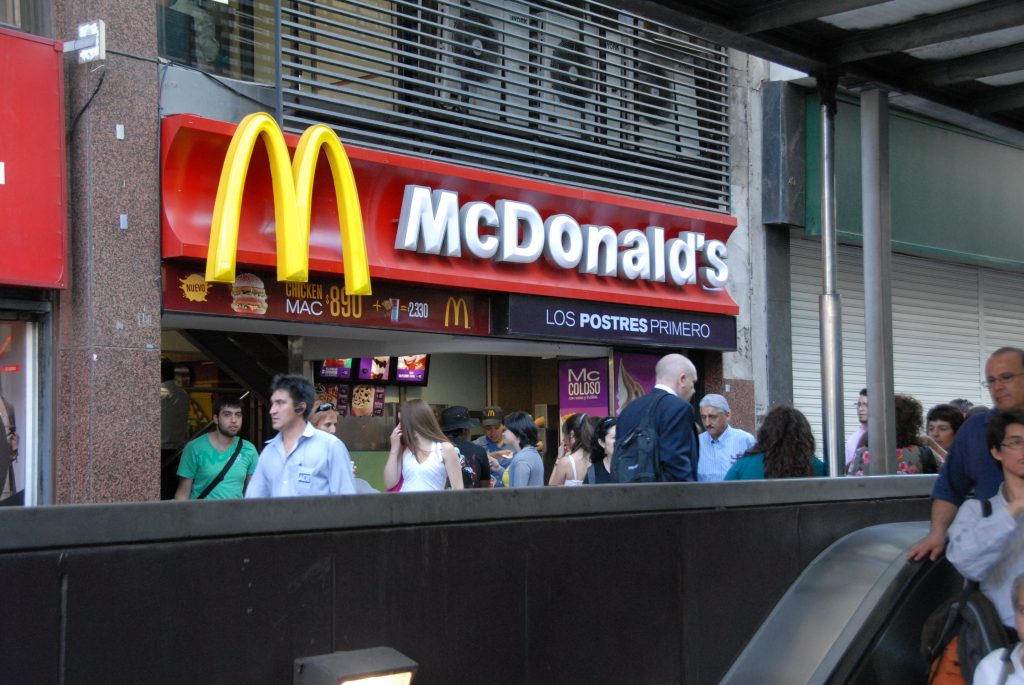The news of the day sometimes throws up events that combine to highlight the absurdity, and the perversity, of today’s policies of selective market fundamentalism.
Tuesday, 14 January was one of those days. The Guardian reported that councillors in the last county in England without a Burger King, Kentucky Fried Chicken or McDonald’s restaurant (if that is really the appropriate word) had approved a 24-hour McDonald’s drive-through in the town of Oakham. This happened even though 55 of the 78 representations submitted to planning officers opposed the planning permission.
In a spirit of rough and ready critical discourse analysis, it is worth considering the language of the news report. Damien Gayle and Kevin Rawlinson wrote that many people they interviewed were ‘hopeful that the new restaurant would give the town’s young people somewhere to go and create local jobs’ (my italics), and ‘[p]arents … said they would welcome not having to drive to neighbouring counties to “treat” their children to McDonald’s food’ (my italics again).
So this is what market fundamentalism hath wrought, and obeisance before the deity of (private sector) job creation is only part of the picture. Silly me; I would never have thought of McDonald’s on a list of places for young people to go. Oakham’s library is still functioning, unlike the 343 libraries across the UK that closed between 2010 and 2015, although admittedly it is only open during the day Monday to Saturday. Rutland County’s web site offers numerous links to parking information, but no mention of parks; I’m not certain what to make of that. And these are strange days indeed when parents feel compelled to drive substantial to feed their children a McDonald’s meal. The industry, of course, is not just a passive bystander. It targets children in its advertising, as McDonald’s did in Chile; this was pointed out in the web summary of a September 2011 Euromonitor report that is no longer online, but I have it on file.

‘
It’s as if no one had heard of the epidemic of child and adolescent obesity, or the massive revenues, profits and marketing budgets of the ultra-processed food and fast food industries that contribute to it. Encouragingly, the public health community is slowly coming to grips with the importance of commercial determinants of health, but it will be a long hard slog, with deep-pocketed adversaries.
On, then, to the second news item of the day. Short-haul airline Flybe, which serves 56 locations in the UK and continental Europe, received a bailout from its major shareholders that may be accompanied by sweeteners from the magic public money tree including deferred tax payments and a reduction in air passenger duty on domestic flights. Entirely understandable expressions of outrage, not least from its commercial competitors, seem likely to have no effect, yet as Nils Pratley pointed out in The Guardian: ‘Increased trading losses? Higher fuel costs after sterling’s decline last summer? Brexit uncertainty? None of those risks were unimaginable 12 months ago’. This is a case of bad management, or more accurately bad accounting, pure and simple. Management is surely what was lacking.
It’s as if no one had heard of climate change, or the aviation industry’s contribution to greenhouse gas emissions.
Many forms of infrastructure are essential for modern life, and in the UK many have been dismembered by a decade of austerity. In a carbon-conscious age when, as economists never cease to remind us, resources are limited, a failing regional airline is not one of those essentials. The idea of letting markets work never seems to play very well in the commercial aviation industry, or with its political protectors.
Now, please don’t take what I am about to write the wrong way. All of us concerned with health inequalities recognise that governments must get in the way of markets, in all kinds of ways and for all kinds of reasons. But here are two modest proposals, with apologies to Jonathan Swift, for how a creative, environment- and health-friendly government might use markets to move towards a healthier, less inequitable and greener world.
First: let airlines, like your local drycleaner, price their services at a level that will ensure an adequate return on investment, whatever that may be, or go bust. By all means subsidise transport, but concentrate on options that generate the fewest negative health impacts: low-carbon rail and bus services, active transport, and reducing the need for travel. Conversely, massively dis-incentivise polluting and carbon-intensive transport. The British Heart Foundation have just launched an important campaign on air pollution, as has The Times; more power to them both, even though The Times’s proposals are modest, perhaps in deference to its Range Rover readership.
Second: if planning permission for fast food franchises must be allowed, why can’t central government legislate a quota of such permissions for the entire country, or for each region (say, in the English case, each NHS footprint area); auction opportunities to apply for them to the highest bidders, with periodic renewal required; and gradually shrink the quota at each successive auction? The tidy bit of revenue generated could be ring-fenced to reopen libraries and activity centres, restore parks, use traffic calming to improve the activity-friendliness of neighbourhoods, and perhaps subsidise the cost of healthy food.
Just asking …
